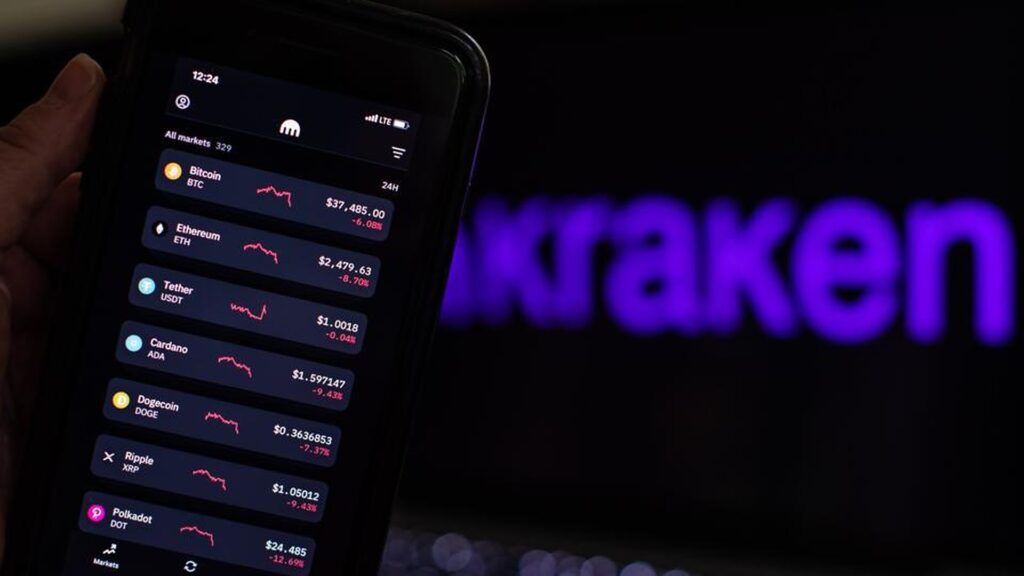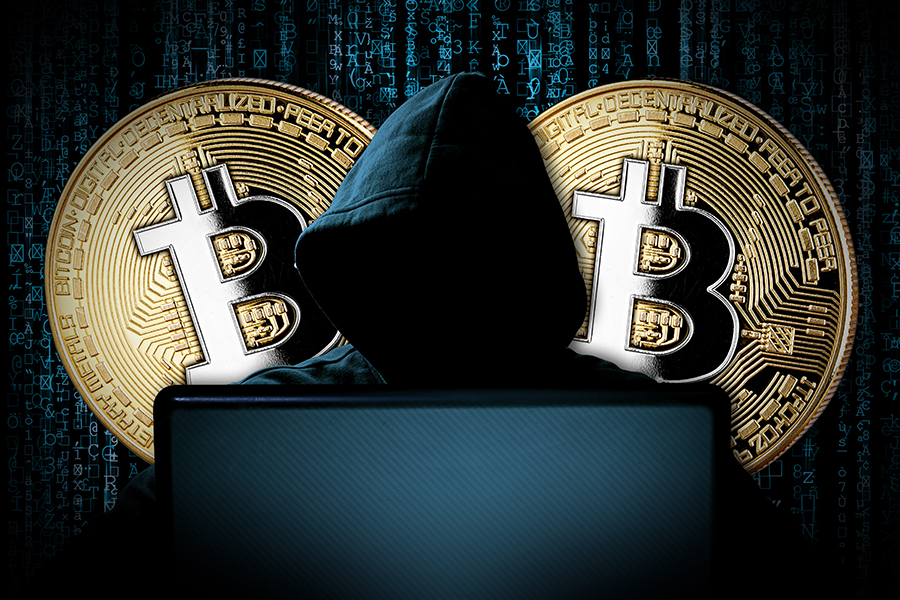Cryptocurrency forecasting often relies on statistical tools like ARIMA (AutoRegressive Integrated Moving Average) to analyze and predict future price trends.
ARIMA models are known for their ability to analyze time-series data and predict future points in a series by ensuring that mean, variance, and covariance remain constant over time.
In this article, we explore the Shiba Inu (SHIB) price predictions for the years 2023, 2024, and 2025 using an ARIMA model.
By fitting the model to SHIB’s historical data, we were able to make accurate predictions. For the years 2023 and 2024, we assumed a daily return of 0.005%, while for 2025, we slightly increased it to 0.006%.
Using the daily return in conjunction with the current price, we calculated the forecasted prices for each year.
According to our calculations, SHIB may reach $0.000007864 by the end of 2023, $0.000008110 by the end of 2024, and $0.000008774 by the end of 2025.
ARIMA models offer several advantages in predicting cryptocurrency prices as they can capture various temporal structures in time-series data.
These models consider different lags and lagged forecast errors, allowing for reliable price predictions with a certain level of confidence.
However, it’s important to note that ARIMA models have limitations and should be complemented with other forecasting techniques for more accurate predictions.
It’s crucial to bear in mind that cryptocurrency markets are highly volatile and subject to rapid changes.
While these predictions provide potential trajectories for Shiba Inu, it is essential to approach them with caution. SHIB, like all cryptocurrencies, is susceptible to market volatility, regulatory changes, and broader economic factors.
Moreover, meme coins such as SHIB carry unique risks, often influenced by hype cycles and sudden shifts in investor sentiment.
Therefore, any investment decision should be backed by comprehensive research and a thorough understanding of the associated risks.
In the fast-paced world of crypto, a cautious approach is paramount.
In conclusion, by utilizing an ARIMA model, we derived price predictions for Shiba Inu in the years 2023, 2024, and 2025.
However, it is vital to remember that these predictions are not foolproof due to the unpredictable nature of cryptocurrency markets.
Investors should exercise caution, conduct thorough research, and remain aware of the risks involved when considering any cryptocurrency investment.
Other Stories:
Crypto ATM Company To Go Public After Announcing Merger
Crypto Scams and Hacks Resulted In Almost $700 Million Loss In First Half of 2023
Pepe Coin, a popular meme cryptocurrency, has experienced a remarkable surge of 15% within the last 24 hours, outperforming other well-known meme coins like Dogecoin and Shiba Inu in terms of market capitalization.
This surge in Pepe Coin’s value coincides with a broader market shift influenced by major financial institutions such as BlackRock, WisdomTree, and Fidelity, who have recently filed for spot Bitcoin exchange-traded funds (ETFs).
This development has generated excitement among investors and has had a positive impact on the overall crypto market.
Consequently, meme coins like Dogecoin and Shiba Inu have also seen notable price spikes, with gains of 4% and 4.36% respectively.
According to data from CoinGlass, a significant $1.78 million worth of Pepe Coin shorts have been liquidated within the past 24 hours, out of a total of $2.54 million in liquidations.
At the time of writing, Pepe Coin is trading at $0.0000017 per coin. This means that with just $1.60, one can acquire 1 million Pepe Coins.
The Pepe token was launched on the Ethereum blockchain in April and quickly gained traction among cryptocurrency enthusiasts.
Its market capitalization surpassed $1 billion on May 5, which sparked a new wave of meme coins inspired by the frog-themed phenomenon.
The rise of Pepe Coin and other meme coins underscores the growing interest and involvement of retail investors in the cryptocurrency market.
While these meme coins often carry a speculative nature and can be highly volatile, they have attracted a dedicated following of supporters who find amusement and potential profit in their unique characteristics.
It is important to note that investing in meme coins and cryptocurrencies, in general, carries significant risks, and individuals should exercise caution and do thorough research before making any investment decisions.
As the crypto market continues to evolve and new trends emerge, it will be interesting to see how Pepe Coin and other meme coins navigate the ever-changing landscape of digital currencies.
Other Stories:
Crypto ATM Company To Go Public After Announcing Merger
Crypto Scams and Hacks Resulted In Almost $700 Million Loss In First Half of 2023
The United States District Court for the Northern District of California has issued an order requiring cryptocurrency exchange Kraken to provide the Internal Revenue Service (IRS) with user account and transaction information.
The IRS stated that it needed this information to investigate potential tax underreporting by the exchange’s users.
According to the order issued on June 30, Kraken is obligated to disclose details of users who conducted transactions exceeding $20,000 within a calendar year.
This includes their names (real or pseudonyms), birthdates, taxpayer identification numbers, addresses, phone numbers, email addresses, and other relevant documents.
The IRS had previously filed a court petition in February in the Northern District of California following Kraken’s settlement with the U.S. Securities and Exchange Commission (SEC) regarding alleged securities law violations related to its staking service.
The IRS claimed that it had previously issued a summons to Kraken in 2021, which the exchange failed to comply with.
Now, the IRS seeks to investigate the tax obligations of users who engaged in cryptocurrency transactions between 2016 and 2020.
Furthermore, Kraken will also be required to provide blockchain addresses and transaction hashes, which are already part of the transaction data available for sharing.
The exchange may also be asked to furnish raw data to the IRS.
Judge Joseph Spero, who oversaw the case, dismissed the IRS’s attempts to obtain employment information and source of wealth from Kraken, denying several of the agency’s requests.
The judge emphasized the need to determine if the government’s summons is appropriately focused and does not exceed what is necessary to accomplish its intended purpose.
The court found that the information sought in the initial three requests, which aimed to identify Kraken account holders falling within the “Doe” definition, was overly broad and exceeded what most users needed to establish their identities.
This ruling in favor of the government comes at a time when the United States is intensifying its crackdown on cryptocurrencies.
In June, the SEC filed separate lawsuits against Coinbase, accusing the exchange of operating an illegal platform, and against Binance.US, alleging mishandling of customer funds, misleading investors and regulators, and violations of securities regulations.
Other Stories:
Crypto ATM Company To Go Public After Announcing Merger
Crypto Investor Reports Huge Bitcoin (BTC) Gains With Questionable Strategy
Hong Kong is actively embracing the development of Web3 by establishing a task force comprised of industry and government officials to oversee its progress and ensure ethical growth.
The government’s commitment to the sustainable and responsible development of Web3 was announced in the 2023-24 Budget, with the Financial Secretary, Paul Chan, expressing Hong Kong’s ambition to be a frontrunner in the Web3 sector.
The task force consists of 15 industry participants and 11 key government officials who will collaborate to provide recommendations on the development of Web3 in Hong Kong.
Chan believes that by bringing together leaders and professionals from relevant sectors, the task force will offer valuable advice to transform Hong Kong into a thriving Web3 hub.
The government’s policy statement on virtual asset development, released in October 2022, received a positive response from the market, with over 80 virtual asset-related companies expressing interest in establishing a presence in Hong Kong.
Hong Kong has been actively promoting itself as an attractive destination for cryptocurrency firms.
On June 10, Johnny Ng, a member of the Hong Kong Legislative Council, extended an invitation to global virtual asset trading platforms, including Coinbase, to apply for a virtual asset service provider license in Hong Kong.
This invitation came shortly after the United States Securities and Exchange Commission took legal action against Coinbase on June 6.
The Hong Kong Securities and Futures Commission also announced on May 23 that licensed platforms would soon be able to cater to retail investors, encouraging operators of virtual asset trading platforms to submit license applications if they comply with the proposed guidelines.
With these initiatives, Hong Kong aims to position itself as a leading center for Web3 development and innovation.
By attracting top-notch companies and talent in the field, the region strives to build a thriving ecosystem.
The task force’s supervision and the government’s supportive policies demonstrate Hong Kong’s commitment to fostering sustainable growth in the Web3 sector and establishing itself as a global hub for Web3 technology.
Other Stories:
Crypto ATM Company To Go Public After Announcing Merger
Crypto Scams and Hacks Resulted In Almost $700 Million Loss In First Half of 2023
Coinbase, the largest cryptocurrency platform in the United States, has announced its intention to request the dismissal of a lawsuit filed against it by the U.S. Securities and Exchange Commission (SEC).
The lawsuit alleges that Coinbase violated the law by failing to register its business.
In a letter submitted to the Manhattan federal court just before midnight on Wednesday, Coinbase argued that the SEC lacks the authority to pursue civil claims because the assets traded on its platform do not fall under the category of “investment contracts” and, therefore, should not be considered securities.
According to Coinbase, the SEC can only pursue its claims if the tokens and staking services in question are classified as securities, which the company asserts they are not.
As of now, there has been no immediate response from the SEC regarding Coinbase’s argument.
The SEC initiated the lawsuit against Coinbase on June 6, accusing the platform of making billions of dollars by acting as a middleman in the trading of at least 13 crypto assets or tokens, such as Solana, Cardano, and Polygon, that should have been registered as securities.
Apart from the alleged securities violations, Coinbase also faces legal action over its “staking” program.
This program involves pooling crypto assets to support blockchain network activity, with customers receiving rewards in exchange for their participation while Coinbase takes commissions.
The SEC’s legal action against Coinbase came shortly after its lawsuit against Binance, the world’s largest cryptocurrency exchange.
The SEC accused Binance of inflating trading volumes, mishandling customer funds, and providing false information about its operations.
SEC Chair Gary Gensler has been actively asserting jurisdiction over the cryptocurrency industry, claiming that it has undermined investor trust in U.S. capital markets.
In a separate filing disputing the SEC’s claims, Coinbase stated that it welcomes regulation but believes the regulator is overstepping its boundaries and attempting to fill a “regulatory gap” without the necessary authorization from Congress.
Coinbase argued that the SEC’s actions in this case exceed its authority and are therefore unlawful.
Following the news of Coinbase’s response, shares of its parent company, Coinbase Global, experienced a 2.2% increase, rising by $1.58 to reach $72.33 during afternoon trading on the Nasdaq.
The lawsuit against Coinbase is officially known as SEC v Coinbase Inc et al, and it is being heard in the U.S. District Court for the Southern District of New York under case number 23-04738.
Other Stories:
Crypto ATM Company To Go Public After Announcing Merger
Crypto Scams and Hacks Resulted In Almost $700 Million Loss In First Half of 2023
According to a report released on June 30 by Web3 security firm Beosin, the total value of cryptocurrencies lost in scams, hacks, and rug pulls reached $656 million in the first half of 2023.
This amount includes $471.43 million lost in 108 protocol attacks, $108 million in various phishing scams, and $75.87 million in 110 rug pulls.
Notably, this represents a significant decrease compared to the losses in the second half of 2022, where $1.91 billion and $1.69 billion were lost in hacks, respectively.
The report also highlighted that around $215 million of stolen assets were recovered, accounting for 45.5% of all stolen assets.
In contrast, only 8% of stolen assets were recovered in 2022. Additionally, $113 million of stolen assets were transferred to mixers, with $45.38 million going into Tornado Cash and $68.14 million into other mixers.
The majority of the crypto lost in the first half of 2023 were coins and tokens minted on the Ethereum blockchain, accounting for 75.6% of the total. Binance Smart Chain tokens, on the other hand, represented just 2.6% of the stolen assets.
Smart contract vulnerabilities were identified as the main cause of loss, responsible for 56% of the stolen crypto, while 21.4% had no clear identifiable reasons for the loss.
However, these figures indicate a significant decrease compared to the second half of 2021, when a record $2.1 billion was lost in crypto due to hacks, phishing scams, and rug pulls.
In the second quarter of 2023, over $208 million was exploited and hacked from decentralized finance (DeFi) protocols, with only $4.5 million of funds recovered, resulting in total losses of over $204 million.
The DeFi ecosystem, despite its substantial daily trading volume, remains a niche industry accessible to a limited population within the crypto industry.
To gain a comprehensive understanding of DeFi, Cointelegraph Research has released a new report titled “Investing in DeFi: A Comprehensive Guide.”
Maple Finance, a web3 lending platform, has recently introduced a direct lending program to fill the void left by bankrupt major lending protocols like BlockFi.
This program aims to replace services previously provided by Celsius, BlockFi, and other now-defunct lenders.
Following the Bedrock upgrade, transactions on the Optimism network surged by 67%. The upgrade led to an increase in daily transactions from less than 300,000 to over 550,000.
Despite market drawdown, leading wallet service providers have added support for the BRC-20 token standard issued on the Bitcoin network, including BitKeep and OKX.
The overall DeFi market experienced a bullish surge after three bearish weeks, with most of the top 100 DeFi tokens trading in the green. However, the total value locked in DeFi protocols remained below $50 billion.
Other Stories:
UK To Pass Law To Bring Cryptocurrencies Under Traditional Asset Regulations
Blockchain technology is making a significant impact in Africa by addressing real-world challenges such as hyperinflation and corruption, according to industry executives interviewed by Cointelegraph.
Chris Maurice, the CEO of Yellow Card, Africa’s largest cryptocurrency exchange, highlighted how crypto is enabling Africans to escape the failures of traditional financial systems and conduct transactions more freely.
He emphasized that cryptocurrencies are solving genuine problems related to banking, currencies, and inflation on the continent, unlike the perception of crypto as a speculative casino in the West.
The adoption of crypto in Africa has been remarkable, with the region boasting more crypto users than North America or Europe.
Six of the top 20 countries worldwide for cryptocurrency usage are in Africa. This demonstrates that Africa is emerging as a crypto continent, as stated by Maurice.
Kevin Imani, the CEO of Sankore 2.0, affiliated with the Near Protocol, sees blockchain-based payments as a human rights technology, providing financial inclusion and control over money to individuals in underdeveloped nations who face hyperinflation and corruption.
The inflation rates in Sub-Saharan Africa reached an estimated 14.5% in 2022, the highest annual change since the 2008 recession, according to Statistica.
Imani highlighted the ability of cryptocurrencies to counter weak national currencies and corruption, making peer-to-peer crypto transactions an attractive choice for many Africans.
From Lagos to Nairobi, Accra to Cape Town, Africa is becoming a hub for tech innovation, as various tech startups and initiatives contribute to the continent’s digital transformation.
Okoye Kevin Chibuoyim, the CEO of GIDA, a crypto education platform based in Nigeria, sees crypto as Africa’s next opportunity for empowerment and participation in something great.
He believes that blockchain’s transparent nature builds trust among Africans who are accustomed to unaccountable and opaque governments.
The potential of cryptocurrencies in Africa has also attracted international partnerships, such as the collaboration between Block, a U.S. digital payments firm led by Jack Dorsey, and Yellow Card to facilitate cross-border payments in Africa.
The rapid growth of cryptocurrency users in Africa in 2021, with a 2,500% increase, led to an 11-fold explosion in venture capital funding in 2022.
Maurice specifically pointed out the enthusiastic adoption of cryptocurrency by Nigerians, stating that 47% of Nigerians own or transact with crypto on a daily basis.
However, there are still countries in Africa where cryptocurrency is reportedly illegal, such as Cameroon, Central African Republic, Gabon, Guyana, Lesotho, Libya, and Zimbabwe, according to Investopedia.
Overall, blockchain technology and cryptocurrencies are addressing real-world challenges in Africa and providing financial inclusion and control over money to individuals who face hyperinflation and corruption.
The adoption of crypto in Africa is growing rapidly, with the continent becoming a major player in the crypto space and a hub for tech innovation.
Other Stories:
EDX Cryptocurrency Exchange Prepares to Switch Custody Providers
Bankrupt Crypto Exchange FTX Takes Steps Towards Relaunching as a New Entity
SEC Commissioner Pushing For ‘Reserved’ Approach to Cryptocurrency Regulation
Investors who put their money into Logan Paul’s CryptoZoo nonfungible token (NFT) gaming project are still waiting for the promised refund of 1000 Ether (ETH), worth $1.93 million at current prices, according to reports.
In a YouTube video posted on June 30, a YouTuber known as Coffezilla, who first exposed the issues with the project in December 2022, claimed that Paul’s communication with the CryptoZoo community has been nonexistent in recent months.
Coffezilla stated, “It’s been six months, so here’s a follow-up.
“Logan Paul has not paid back his victims, he hasn’t talked about it since he first announced he was gonna pay them back.
“And what’s worst of all, he doesn’t seem to have a plan in place to refund anyone.” Coffezilla also revealed that he had been pressing Paul for a refund plan behind the scenes but received no concrete response.
CryptoZoo was launched in September 2021 as an NFT breeding game that offered opportunities to earn ZOO tokens and NFTs.
Paul himself described it as a “really fun game that makes you money.”
However, the project faced numerous issues such as lackluster NFT artwork, plummeting NFT and ZOO token prices, and a failure to deliver on the project’s roadmap.
These problems led to increasing dissatisfaction among investors by late 2022.
After Coffezilla’s exposé videos on CryptoZoo gained traction and sparked community backlash, Paul announced a plan to refund investors on January 14.
He also pledged to fulfill the project’s roadmap.
However, despite these promises, a class-action lawsuit was filed against CryptoZoo and Paul the following month.
In Coffezilla’s latest video, he shared screenshots of email exchanges with Paul’s lawyer, Jeffrey Neiman of the MNR Law Firm.
The emails suggested that no concrete plan had been established for the refund process. Neiman’s email stated, “We are working with Mr. Paul to evaluate the best way to achieve this goal.”
Coffezilla raised concerns about the lack of progress, emphasizing that blockchain developers could easily write the code for the refund process and that Paul has more than enough wealth to reimburse the investors.
He criticized the statement from Paul’s lawyer, calling it a stalling tactic or an admission of having no plan. Coffezilla questioned why, six months later, the team had not figured out a solution.
As of now, Paul has not responded to these allegations on YouTube or Twitter, leaving investors in CryptoZoo uncertain about the fate of their investments and the promised refund.
Other Stories:
CME Group to Introduce Ether/Bitcoin Ratio Futures
UK To Pass Law To Bring Cryptocurrencies Under Traditional Asset Regulations
Maple Finance Launches Direct Lending Program, Filling Void Left by Bankrupt Lenders
Fidelity Investments, a prominent asset manager, has taken a step forward in its pursuit of a spot Bitcoin exchange-traded fund (ETF).
As disclosed in a filing by Cboe BZX Exchange with the United States Securities and Exchange Commission (SEC) on June 19, Fidelity has submitted an application for the ETF.
This move by Fidelity follows a series of similar applications made by other financial giants.
BlackRock, WisdomTree, Invesco, and Valkyrie had all submitted their respective spot Bitcoin ETF applications in the preceding days, with BlackRock initiating the trend on June 15.
According to Bloomberg, a total of seven spot Bitcoin ETF applications have been filed this year. Notably, Fidelity, WisdomTree, and Invesco are making a second attempt at securing approval for their spot BTC ETFs.
The applications submitted for the spot Bitcoin ETFs emphasize the significance of the regulated CME Bitcoin Futures market as it pertains to the spot Bitcoin market.
Fidelity’s application, much like others, argued extensively on this point and supported its claim with thorough research.
In its 193-page application, Fidelity stated, “The lack of a Spot Bitcoin ETP exposes U.S. investor assets to significant risk because investors that would otherwise seek crypto asset exposure through a Spot Bitcoin ETP are forced to find alternative exposure through generally riskier means.”
It also highlighted past instances, such as the cases of FTX, Celsius, BlockFi, and Voyager Digital, where investors had resorted to riskier alternatives due to the absence of a spot Bitcoin ETP.
Fidelity Digital Assets Services, a regulated custodian licensed by the New York Department of Financial Services, would be entrusted with the custody of the trust’s Bitcoin.
Furthermore, Cboe BZX Exchange announced its intent to establish a surveillance-sharing agreement with a United States-based cryptocurrency exchange.
It’s worth noting that the SEC is yet to approve any of the applications for a spot Bitcoin ETF. Fidelity’s filing, using the 19b-4 form, revealed that the firm is reviving its Wise Origin Bitcoin Trust product, which was initially submitted for approval in March 2021.
Unfortunately, the previous application was rejected despite two deliberation extensions.
With approximately $11 trillion in assets under administration, Fidelity Investments holds significant clout in the financial industry.
If approved, its spot Bitcoin ETF would provide investors with a regulated and more accessible avenue for exposure to Bitcoin, reducing the need for riskier alternatives.
However, the ultimate decision rests with the SEC, and the market awaits their verdict on these applications.
Other Stories:
Bankrupt Crypto Exchange FTX Takes Steps Towards Relaunching as a New Entity
SEC Commissioner Pushing For ‘Reserved’ Approach to Cryptocurrency Regulation
EDX Cryptocurrency Exchange Prepares to Switch Custody Providers
Coinbase, the leading American cryptocurrency exchange, has taken a strong stance in its legal battle against the United States Securities and Exchange Commission (SEC) by filing a motion to dismiss the SEC’s complaint.
The motion, submitted to the U.S. District Court for the Southern District of New York on Thursday, June 29, raises concerns about the SEC’s interpretation of securities laws, suggesting that the agency is overstepping its legal authority.
In its bid to challenge the SEC’s lawsuit, Coinbase’s legal team argues in the motion that even if the allegations in the lawsuit are true, the plaintiff lacks a valid legal claim.
The filing asserts that the SEC’s actions not only violate Coinbase’s due process rights but also constitute an extraordinary abuse of process, demanding dismissal of the case.
Coinbase’s determination to defend its position against the SEC’s claims is evident in this motion.
The SEC’s lawsuit accuses Coinbase of facilitating unregistered trading of 12 digital tokens that the agency considers securities.
However, Coinbase has strongly contested this allegation, asserting that the SEC is applying securities laws to digital tokens in a manner that deviates significantly from existing legal frameworks.
Paul Grewal, Coinbase’s chief legal officer, expressed this sentiment in a tweet on June 29, stating that the SEC’s claims “go far beyond existing law” and should be dismissed accordingly.
The SEC’s definition of securities encompasses investment contracts, which have been interpreted by the Supreme Court through the Howey test to include transactions where individuals invest money in a common enterprise with the expectation of primarily profiting from the efforts of others.
The SEC’s lawsuit identifies 12 crypto tokens, such as Solana, as securities based on this definition.
Coinbase’s legal team also highlighted that in 2021, the SEC had declared the company’s registration statement effective, allowing Coinbase to sell its shares to investors during its public listing.
This approval came after a thorough review process involving extensive discussions between Coinbase and the SEC, spanning several months.
Consequently, Coinbase was authorized to trade over 240 tokens on its spot exchange, including six of the 12 tokens currently disputed by the SEC.
By filing this motion to dismiss, Coinbase continues to challenge the SEC’s lawsuit and its interpretation of securities laws.
The outcome of this legal battle will not only impact Coinbase’s operations but also shape the regulatory landscape for the broader cryptocurrency industry in the United States.
Other Stories:
Bankrupt Crypto Exchange FTX Takes Steps Towards Relaunching as a New Entity
US Federal Reserve Stress Tests: Largest Banks Pass Severe Recession Scenario
SEC Commissioner Pushing For ‘Reserved’ Approach to Cryptocurrency Regulation












